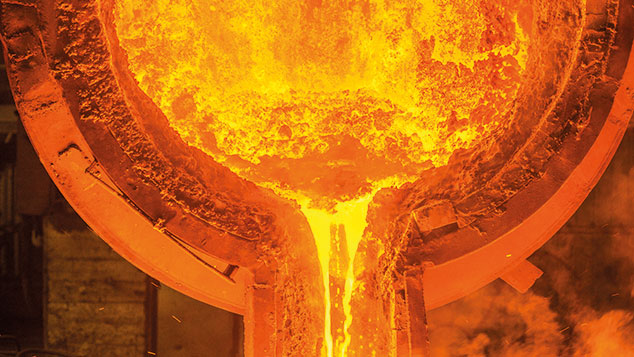
The Financial Conduct Authority (FCA), the City regulator, has ruled out a ban on transfers out of final-salary pension schemes, despite warnings from MPs that it is “sleepwalking into another huge mis-selling scandal”. The row follows an inquiry into the advice given to members of the British Steel pension scheme, which found that more than 2,000 steelworkers had transferred out of their final-salary schemes after receiving allegedly unsuitable advice.
Under the current rules, anyone seeking to transfer out of a defined-benefit (DB) scheme (where retirement benefits are guaranteed by the scheme provider), into a defined-contribution (DC) arrangement (where benefits are uncertain and depend on asset price performance), must take independent financial advice if their fund is worth more than £30,000. However, many financial advisers are extremely reluctant to work on such cases, fearing a regulatory backlash in the years ahead. Advisers also point out that the work required to give good advice is extensive, meaning that savers are often charged four-figure sums only to be told to do nothing.
MPs and consumer groups fear that the shortage of good advisers in the pension-transfer area has encouraged less professional firms to target transfer work in the hope of earning lucrative fees, particularly in cases such as the British Steel restructuring. Advisers are also thought to have targeted BHS pension savers – and many fear Carillion pension-scheme members could be next.
In the British Steel case, the FCA eventually launched an investigation into all the firms offering transfer advice, and in several cases intervened to prevent advisers taking on more work. But MPs complain that the regulator was too slow to take action, to the detriment of many savers who had already decided to transfer.
Beneath the spat lies the fundamental question of whether it is ever right for a member of a DB scheme to transfer out. The FCA has consistently argued that such transfers are wrong for the majority of people, but maintains that they do make sense for a minority who would be unfairly disadvantaged by an outright ban. So despite MPs’ warnings, an imminent ban seems unlikely.
Savers reject final-salary security
Despite regulators and financial advisers consistently arguing that transferring out of a final-salary pension scheme is almost always the wrong course of action, nearly 80,000 chose to ignore this advice in the 12 months to last March.
One explanation for this is that some pension schemes have offered very generous transfer values to savers taking out their money. These savers have then calculated that they stand a good chance of securing higher pension income by investing their money in a defined-contribution (DC) scheme.
Also, DB schemes do not benefit from many of the pensions freedom reforms introduced in 2015, which generally give pension savers more control over their retirement cash. A third factor in transfer activity has been the high-profile collapse of several large companies. Although final-salary schemes are safeguarded by a government-backed lifeboat scheme, benefits are not always protected in full.
For sophisticated investors – perhaps with several private pension pots – these arguments may be enough to justify at least considering a transfer. But getting good-quality independent financial advice is crucial, and a transfer will still be the wrong answer for most people.
Not all Carillion staff have a spot on the lifeboat
The government has moved quickly to reassure Carillion staff that their pensions are protected following the collapse of the outsourcing giant last week – but not everyone will receive their full entitlement.
The Pensions Protection Fund (PPF), the industry lifeboat scheme, is already assessing all the defined-benefit schemes linked to the Carillion companies placed in liquidation so far. This covers around 5,900 members, including both current workers and those who have left the company or already retired. Trustees of the pension scheme had started writing to individual members last week to let them know what to expect.
Under PPF rules, those already receiving a pension will now be paid this income from the lifeboat scheme, but with restrictions on future increases. Those yet to retire will be able to claim 90% of their pension entitlement from the scheme once they reach retirement age, up to a cap of £34,655 a year.
But one wrinkle in this arrangement involves a handful of former public-sector workers who had already retired when Carillion took on government contracts. A complication in the outsourcing process means these workers have been receiving their pensions direct from Carillion, rather than from the company’s pension schemes. Their benefits may therefore not be covered by the PPF. Unions and ministers are now scrambling to identify the number of people affected by this issue – and whether similar arrangements apply at any other outsourcing companies.
Tax tip of the week
If you miss the imminent 31 January deadline to file your self-assessment tax return, you’ll have to pay a penalty of £100. After three months, you’ll be fined £10 for every day it is late, up to a maximum of £900. After six months, you’ll be fined whichever is higher of £300 or 5% of the tax owing, and then another £300 or 5% after 12 months.
On top of this, if you haven’t paid the tax owed after 30 days, you’ll be fined 5% of the tax outstanding, another 5% after six months, and another 5% after 12 months. Interest is also charged on tax owed as soon as it is late, including the amounts added in penalties, at a rate of 3%. The penalties don’t apply to late payments of any payments on account due for the 2017/2018 tax year, but interest will apply to these.